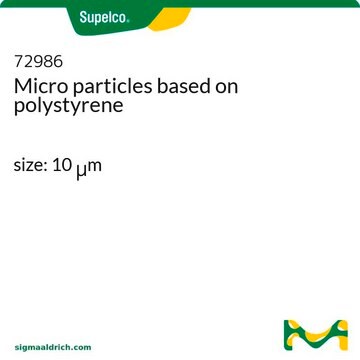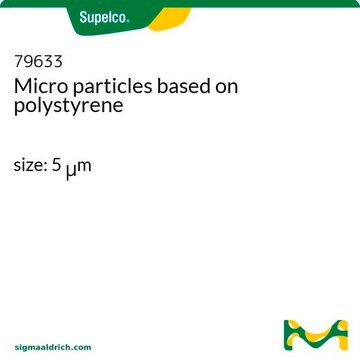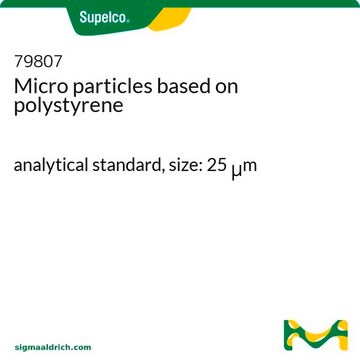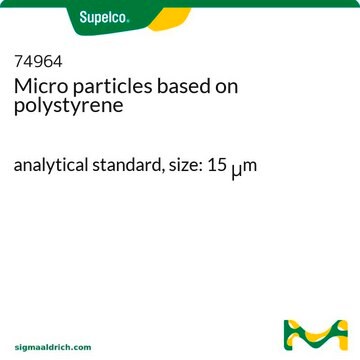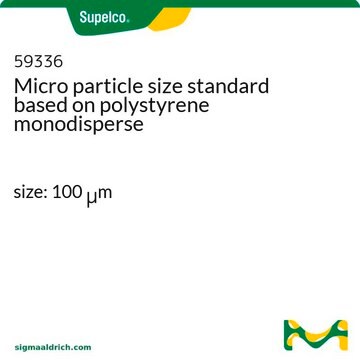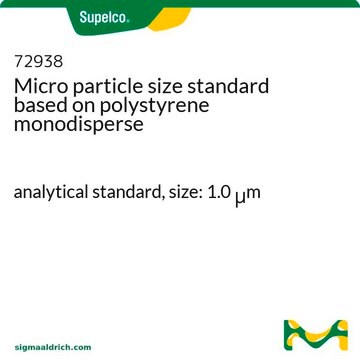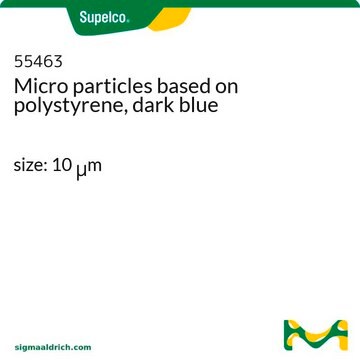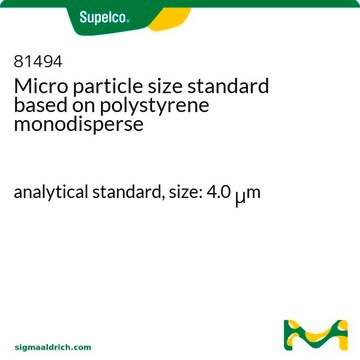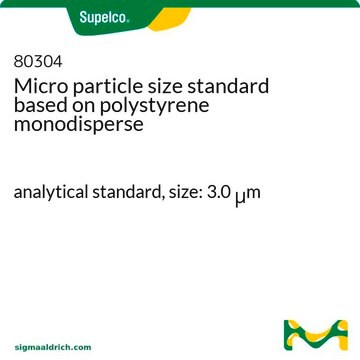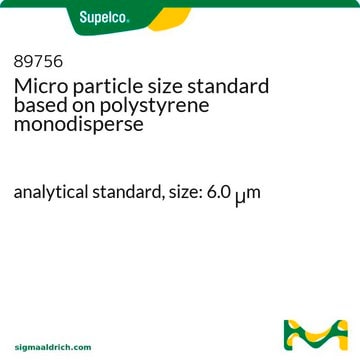72822
Micro particle size standard based on polystyrene monodisperse
size: 10.0 μm
Synonym(s):
Monodisperse polystyrene latex particles (10 μm), monodisperse polystyrene microbeads (10 μm), monodisperse polystyrene microspheres (10 μm), polystyrene monodisperse microparticles (10 μm), Size standards
About This Item
Recommended Products
grade
analytical standard
Quality Level
form
aqueous suspension
crosslinking
2 % cross-linked
concentration
2% (solids)
particle size
10.0 μm std dev <0.15 μm, coeff var <1.5%
application(s)
glass & ceramic
industrial qc
pharmaceutical
format
neat
storage temp.
2-8°C
Looking for similar products? Visit Product Comparison Guide
General description
Application
Monodisperse polystyrene latex particles are also used to:
- fabricate microsphere-based interferometric optical probe called reflectophore
- validate the Airy Disc First Fringe (ADFF) analysis technique based on size measurements
- qualify spectral reflectometry (SpeRe) instrument by using scanning electron microscopy (SEM)
Features and Benefits
- suitable for routine instrument calibration checks, testing and corrections
- available in 5 mL and 10 mL pack sizes as neat samples
Analysis Note
- Transmission electron microscopy (TEM)
- Scanning electron microscope
- Light microscopy
- Coulter™ counter with MDF-system
Legal Information
Storage Class Code
10 - Combustible liquids
WGK
WGK 3
Flash Point(F)
410.0 °F
Flash Point(C)
210 °C
Personal Protective Equipment
Regulatory Listings
Regulatory Listings are mainly provided for chemical products. Only limited information can be provided here for non-chemical products. No entry means none of the components are listed. It is the user’s obligation to ensure the safe and legal use of the product.
JAN Code
72822-5ML-F:
72822-10ML-BULK-F:
72822-BULK-F:
72822-5ML-BULK-F:
72822-10ML-F:
Choose from one of the most recent versions:
Already Own This Product?
Find documentation for the products that you have recently purchased in the Document Library.
Customers Also Viewed
Our team of scientists has experience in all areas of research including Life Science, Material Science, Chemical Synthesis, Chromatography, Analytical and many others.
Contact Technical Service